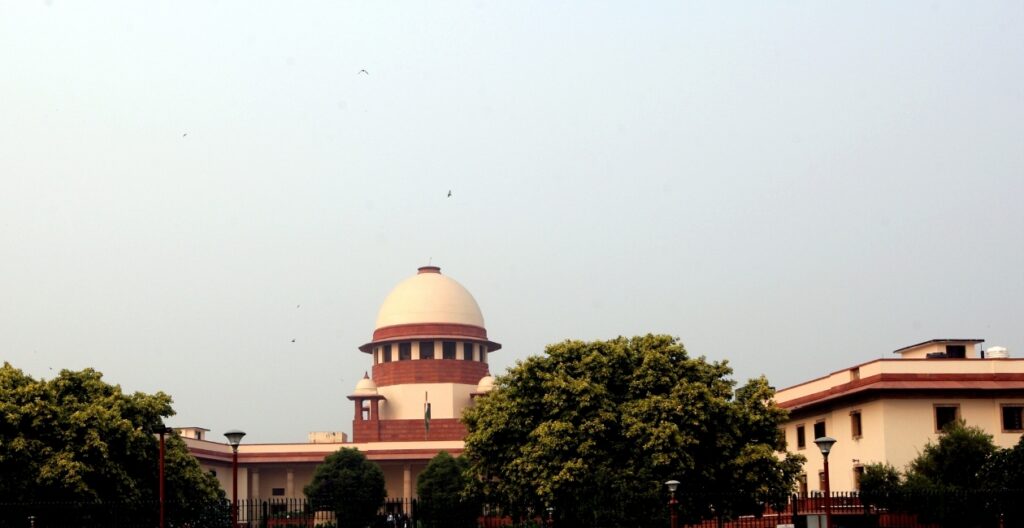New Delhi, May 13 (IANS) The Supreme Court said on Friday that trial courts and high courts can consider default bail pleas in criminal cases on the ground of non-filing of charge sheets within the stipulated period of 60 or 90 days.
The apex court clarified that the court should not rely on its recent Ritu Chhabaria judgment in the matter.
A bench headed by Chief Justice of India, D.Y. Chandrachud, made this observation while hearing Centre’s application seeking the recall of its verdict which ruled that an accused will be entitled to default bail if an incomplete charge sheet is filed by the investigating agency.
On April 26, a bench comprising justices Krishna Murari and C.T. Ravikumar had said: “We find it pertinent to mention that the right of default bail under Section 167(2) of the CrPC is not merely a statutory right, but a fundamental right that flows from Article 21 of the Constitution.”
The Supreme Court had then said the investigating agency filing an incomplete charge sheet would scuttle the chances of default bail for the accused.
An accused becomes entitled for statutory bail (default bail), under the Code of Criminal Procedure (CrPC), if the probe agencies fail to file the charge sheet on conclusion of the probe. Investigators are granted 90 days or 60 days, depending on the seriousness of the crime.
The bench headed by justice Murari had observed that the petitioner’s husband was denied default bail on filing of supplementary charge sheet by the investigating agency in a cheating case.
“The question of resorting to a supplementary charge sheet u/s 173(8) of the CrPC only arises after the main charge sheet has been filed, and as such, a supplementary charge sheet, wherein it is explicitly stated that the investigation is still pending, cannot under any circumstance, be used to scuttle the right of default bail, for then, the entire purpose of default bail is defeated,” the bench had said.
The top court said the filing of a charge sheet or a supplementary charge sheet becomes a mere formality and a tool to ensue that the right of default bail is scuttled.
“It is thus axiomatic that first investigation is to be completed, and only then can a charge sheet or a complaint be filed within the stipulated period, and failure to do so would trigger the statutory right of default bail under Section 167(2) of Cr.PC,” said the bench.
The bench added, “With the above findings and conclusions, the interim order of bail passed in favour of the accused is made absolute, and the present writ petition is, accordingly, disposed of.”
The plea was filed under Article 32 of the Constitution by the woman seeking the release of her husband on default bail.
On Friday, the bench headed by Chief Justice Chandrachud and also comprising justices P.S. Narasimha and J.B. Pardiwala said that the interim order of this court dated May 1, 2023, shall not preclude any trial court or high court from granting of default bail independent of, and not relying upon, the Ritu Chhabria judgment of April 26, 2023.
Solicitor General Tushar Mehta, representing the Centre, submitted that the government was in the process of filing a review against the judgment. After hearing the submissions, the apex court scheduled the plea for hearing in July.
On May 1, the top court had said: “In the meantime, in the event that any other applications have been filed before any other court on the basis of the judgment of which recall is sought, they shall be presently deferred beyond May 4, 2023.”

